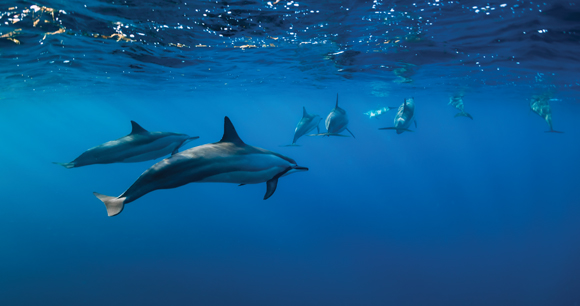The COVID-19 pandemic has disrupted the meeting schedules of many international conventions, with most in-person meetings canceled or postponed (see AWI Quarterly, fall 2020). The biennial meeting of the International Whaling Commission (IWC) was among the casualties. Scheduled for September 2020 in Slovenia, it has now been postponed a full year.

Despite this setback, the IWC’s secretariat adapted nimbly to new ways of doing global business. In the spring, it pivoted to host the annual meeting of its Scientific Committee as an all-online event, enabling the participation of almost 350 scientists, many of whom would not otherwise have been able to attend a traditional, in-person meeting.
The lessons learned from the virtual Scientific Committee meeting recently benefited the IWC’s Conservation Committee, which had been scheduled to meet during the biennial IWC meeting. Instead, a week of daily Zoom sessions and online discussions in writing were held, carefully timed to accommodate participants in every time zone. The virtual format enabled AWI and colleagues from 20 other animal protection and conservation organizations to work alongside representatives of 30 governments. We were able to contribute substantively to every agenda item, including the workplan of the IWC’s bycatch mitigation initiative, principles for whale watching, future work on marine debris, a new initiative for South American river dolphins, and ensuring the secretariat has adequate resources to implement the workplan.
The Conservation Committee is a smaller subsidiary body than the Scientific Committee, the latter of which was established in the 1940s, meets for approximately two weeks every year, and regularly attracts 200 participants. The Conservation Committee is, however, no less important. Its role and importance are likely to increase, in fact, as the IWC considers making structural changes to increase its efficiency. The Conservation Committee was created in 2004 to ensure that the research and recommendations of the Scientific Committee are translated into meaningful conservation measures that will reduce or eliminate threats to cetaceans, including from bycatch in fishing gear, marine debris, vessel strikes, and climate change. As those threats have magnified in recent years, the Conservation Committee’s strategic plan and workload have grown significantly, to include several species-specific (and soon, region-specific) conservation management plans, two well-established mitigation initiatives (focused on bycatch and vessel strikes), and a new effort to assess the socio-economic contributions of cetaceans to ecosystem functioning.
Although most of the Conservation Committee’s substantive work is conducted intersessionally between the biennial IWC meetings, a one-day meeting of the full committee neither does justice to the growing urgency of the issues it addresses nor keeps pace with its increasing workload. AWI believes that the need for an annual Conservation Committee meeting has been clearly established. Although we do not want to relegate the committee to only virtual meetings in the future, we hope that the positive experience—and low financial and environmental cost—of the 2020 virtual Conservation Committee meeting will lead to greater use of modern technology to facilitate IWC deliberations. In particular, we urge consideration of a hybrid model (some participants in person, some online) that ensures transparency and provides equitable access to all member nations and observer organizations.